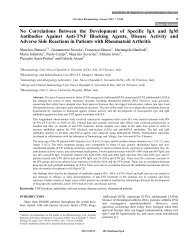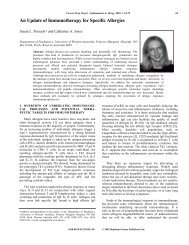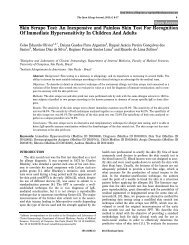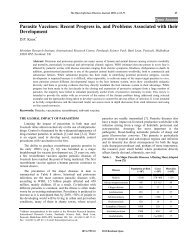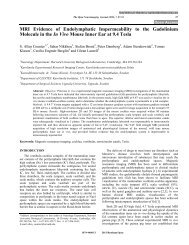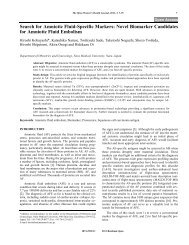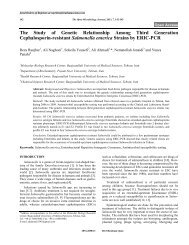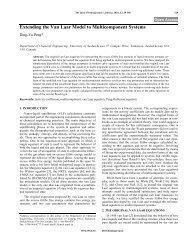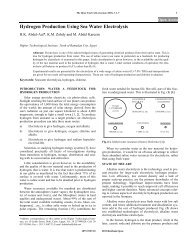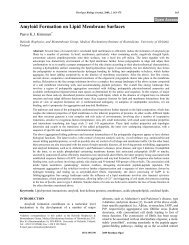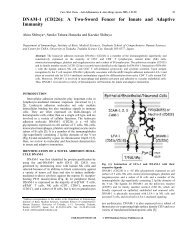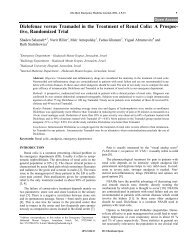Download - Bentham Science
Download - Bentham Science
Download - Bentham Science
You also want an ePaper? Increase the reach of your titles
YUMPU automatically turns print PDFs into web optimized ePapers that Google loves.
Estrogen and Cognition Current Topics in Menopause 107<br />
plaques and neuritic tangles. What causes AD is still not known, but many risk<br />
factors for AD show overlap with those for accelerated cognitive aging and vascular<br />
morbidity, such as smoking, diabetes mellitus, high body mass index, high blood<br />
pressure and high blood lipid levels. Other factors may exert protective effects, such<br />
as high levels of education and possibly sex steroids, such as estrogens.<br />
ESTROGENS AND THE BRAIN: BIOLOGICAL PLAUSIBILITY AND<br />
OBSERVATIONAL TRIALS<br />
There is a plethora of evidence from animal and cell culture studies to suggest that<br />
estrogen should be able to protect the brain against AD and other forms of<br />
dementia [1]. Animal and cell culture studies have shown that estrogens can<br />
enhance acetylcholine synthesis [2] (a neurotransmitter markedly reduced in AD);<br />
have anti-oxidant, anti-inflammatory and anti-apoptotic properties [3]; facilitate<br />
neurotrophin expression [4]; and reduce accumulation of β-amyloid protein (the<br />
protein that accumulates in plaques in the brains of patients with AD) [5]. Of the<br />
estrogens, estradiol is the most potent estrogen [6].<br />
However, after menopause, estrone is the more dominant estrogen [6]. Estrogens<br />
can affect the brain directly through estrogen receptors, but also indirectly through<br />
their protective effects on vascular mechanisms, for instance [6].<br />
Earlier reviews suggested that observational studies indicated a halved risk for<br />
dementia in women who took estrogens for menopausal symptoms [6]. In the<br />
nineties, the main evidence published seemed to suggest that estrogens should be<br />
able to protect the aging brain and sex steroids were then hailed as potentially<br />
very effective for prevention and treatment of AD [7].<br />
BIAS IN OBSERVATIONAL TRIALS OF HORMONE USE AND<br />
DEMENTIA RISK<br />
However, it became apparent that observational data were vulnerable to several<br />
forms of bias which were inherent to the characteristics of the participants under<br />
investigation [8]. As stated above, dementia is characterized by severe memory<br />
impairments [9]. It would thus be expected that women with dementia would have<br />
more problems in recalling their use of hormones around the age of menopause.



